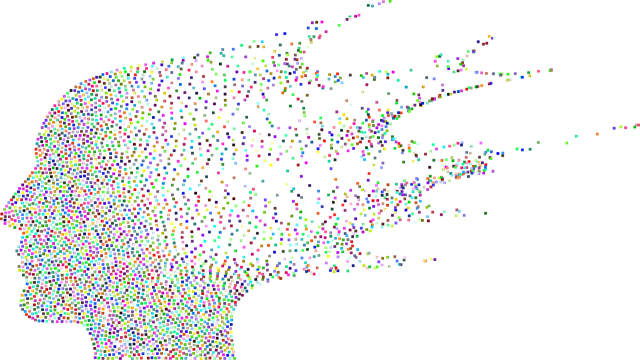Public awareness campaigns play a pivotal role in reshaping societal attitudes towards mental health, particularly Superior Obsessive Compulsive Disorder (SCOD). By educating through storytelling and media engagement, these initiatives dispel myths, reduce stigma, and encourage resilience. Targeting specific demographics and incorporating feedback refines messaging for effective SCOD therapy promotion. Using modern outreach channels like social media and community events enhances reach. Robust evaluation methods track key performance indicators to ensure continuous improvement. The ultimate goal is to enhance access to superior OCD therapy, empowering individuals through knowledge and practical tips like mindfulness meditation.
Public awareness campaigns play a pivotal role in shaping societal understanding of mental health, with OCD being a pressing issue. This article explores strategic approaches to crafting impactful initiatives. We delve into key aspects, from comprehending OCD and its impact to identifying specific target audiences and designing engaging content tailored to their needs.
Through effective messaging and channel selection, we guide strategies that foster awareness and access to superior OCD therapy. Additionally, we emphasize the importance of measurement and iteration for successful campaign outcomes.
- Understanding Public Awareness Campaigns for Mental Health
- Identifying Target Audiences and Their Needs
- Designing Compelling Content and Messaging
- Choosing Effective Channels for Outreach
- Measuring Success and Iterating Strategies
Understanding Public Awareness Campaigns for Mental Health

Public awareness campaigns play a pivotal role in shaping societal perceptions and fostering understanding around mental health issues. These initiatives aim to educate the public, dispel myths, and reduce the stigma associated with various mental illnesses, including Superior Obsessive Compulsive Disorder (SCOD). By highlighting real-life stories and sharing accurate information, these campaigns can help normalize conversations about mental wellness.
Through creative storytelling and engaging media, they promote resilience building and encourage individuals to seek appropriate support. Mental Wellness Coaching Programs Development can be a powerful outcome of successful awareness campaigns, empowering people to take charge of their mental health. Such efforts contribute to a broader goal of improving access to quality therapy, such as Superior Obsessive Compulsive Disorder Therapy, ensuring that those struggling with mental illness receive the necessary care and support.
Identifying Target Audiences and Their Needs

Identifying target audiences is a pivotal step in designing effective public awareness campaigns. Understanding the demographics, psychographics, and specific needs of your intended audience is key to creating impactful messaging. Different groups may require tailored approaches, focusing on issues like anxiety management or burnout prevention. For instance, campaigns targeting youth might emphasize self-awareness exercises and emotional well-being promotion techniques, while adults struggling with chronic conditions could benefit from discussions on superior obsessive-compulsive disorder (OCD) therapy and coping strategies.
By segmenting audiences, campaign creators can ensure that the delivered content resonates with individuals’ unique challenges and aspirations. This personalized approach not only increases engagement but also encourages positive behavioral changes. Incorporating feedback from focus groups or surveys can further refine these efforts, allowing for more precise targeting and ultimately enhancing the overall success of public health initiatives.
Designing Compelling Content and Messaging

Designing compelling content is a key aspect of successful public awareness campaigns. When creating messages about complex topics like Obsessive Compulsive Disorder (OCD), clarity and accessibility are paramount. Effective content breaks down intricate psychological conditions into understandable, relatable narratives. For instance, highlighting stories of individuals successfully managing OCD through therapy and self-care routines can resonate deeply with audiences, fostering empathy and understanding.
Integrating practical tips within these campaigns, such as promoting Mindfulness Meditation as a tool for stress reduction, empowers people to take proactive steps towards better mental health. Balancing informative content with engaging visuals and compelling storytelling ensures that the message reaches a broader audience. Remember, the goal is to capture attention, dispel myths, and encourage actions that positively impact both individual well-being and public awareness, like developing a consistent Self-Care Routine for better Mental Health.
Choosing Effective Channels for Outreach

When designing public awareness campaigns for complex issues like Superior Obsessive Compulsive Disorder (OCD), selecting the right outreach channels is paramount. The goal is to reach a wide audience while ensuring accurate information dissemination, which necessitates a multi-faceted approach. Traditional methods such as print media and television commercials can be effective, but they might not cut through the noise in today’s digital landscape. Thus, leveraging social media platforms, online forums, and community events becomes crucial for maximum impact.
Integrating practices like Stress Management, Anxiety Relief, and Mindfulness Meditation into these campaigns can significantly enhance engagement. By aligning messages with techniques that offer alternative coping mechanisms, campaigns can foster a deeper connection with the target audience. This strategy not only raises awareness but also provides actionable steps for those struggling with OCD, ultimately improving access to superior OCD Therapy options.
Measuring Success and Iterating Strategies

Measuring success is a vital component of any public awareness campaign, especially when addressing complex mental health issues such as Obsessive Compulsive Disorder (OCD). By implementing robust evaluation methods, therapists and campaign organizers can ascertain the impact of their efforts. This involves tracking key performance indicators (KPIs) like changes in participant attitudes, behaviors, and knowledge regarding OCD. For instance, a superior OCD therapy program might measure the reduction in compulsive rituals or the increase in individuals seeking professional help as a result of awareness initiatives.
Regularly reviewing campaign strategies is equally crucial for continuous improvement. Through data-driven insights, mental healthcare professionals can identify what works best and make informed adjustments. This iterative process allows for refining messages, targeting specific demographics, and incorporating cultural sensitivity in mental healthcare practice to ensure the effectiveness of emotional healing processes. A well-tailored approach that boosts confidence in managing OCD symptoms is essential for long-term success.
Public awareness campaigns play a pivotal role in addressing mental health issues, such as OCD. By understanding target audiences, crafting compelling content, and utilizing the right outreach channels, we can significantly enhance public knowledge and reduce stigma. Measuring success and iterating strategies based on data ensures that our efforts are effective and adapted to evolving needs. Ultimately, these campaigns contribute to improving access to superior OCD therapy and fostering a more inclusive society.














